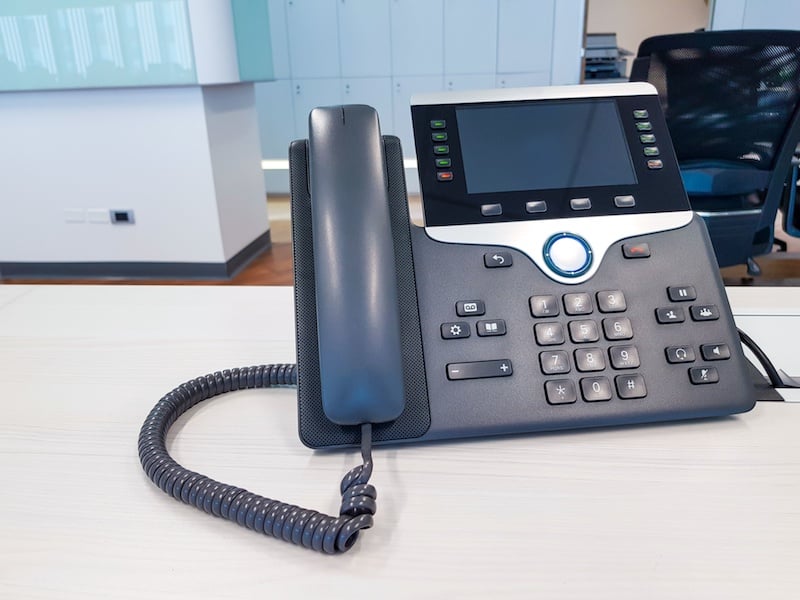Security News

Cisco is warning of a critical flaw in the web server of its IP phones. Cisco issued patches in a Wednesday advisory for the flaw, which affects various versions of its Cisco IP phones for small- to medium-sized businesses.

Among the vulnerabilities fixed are critical flaws affecting a variety of Cisco IP phones and Cisco UCS Director and Cisco UCS Director Express for Big Data, its unified infrastructure management solutions for data center operations. Jacob Baines, a research engineer with Tenable, unearthed two critical flaws affecting the Cisco Wireless IP Phone 8821.

Cisco, Altiostar, an innovator in open virtual RAN technology, and World Wide Technology, a market-leading $12 billion technology solution provider, announced the companies are working together on an Open vRAN blueprint that will accelerate the deployment of 4G/5G OpenRAN solutions in service provider networks. The combined solution will help service providers deploy fully integrated open, cloud-based virtualized RAN solutions based on technologies created by Cisco and Altiostar and that will be brought to market using the sales, integration and deployment capabilities of WWT. "Innovation in mobile networking and open virtualized RAN is continuing at a rapid pace," said Bob Everson, Senior Director of 5G Architecture, Cisco.

An ongoing phishing campaign is reeling in victims with a recycled Cisco security advisory that warns of a critical vulnerability. The campaign urges victims to "Update," only to steal their credentials for Cisco's Webex web conferencing platform instead. The campaign is looking to leverage the wave of remote workers who, in the midst of the coronavirus pandemic have come to rely on online conferencing tools like Webex.

Cisco has conducted a research project on bypassing fingerprint authentication systems and it achieved a success rate of roughly 80 percent, but the company's experts were unsuccessful against Windows devices. In the case of mobile phones, the researchers bypassed fingerprint authentication on a majority of devices.

According to Cisco, a primary cause for too many solutions is the tendency to rely on technology to solve the problems of increased security complexity. "As organizations increasingly embrace digital transformation, CISOs are placing higher priority in adopting new security technologies to reduce exposure against malicious actors and threats," comments Steve Martino, SVP and CISO at Cisco.

Between Jan. 20 and March 11, researchers observed APT41 exploiting vulnerabilities in Citrix NetScaler/ADC, Cisco routers and Zoho ManageEngine Desktop Central as part of the widespread espionage campaign. Starting on Jan. 20, researchers observed the threat group attempting to exploit the notorious flaw in Citrix Application Delivery Controller and Citrix Gateway devices revealed as a zero-day then patched earlier this year.

A China-linked threat actor tracked as APT41 has targeted many organizations around the world by exploiting vulnerabilities in Citrix, Cisco and Zoho ManageEngine products, FireEye reported on Wednesday. "It's unclear if APT41 scanned the Internet and attempted exploitation en masse or selected a subset of specific organizations to target, but the victims appear to be more targeted in nature," FireEye said.

Cisco has patched a clutch of high-priority vulnerabilities in its SD-WAN routers and their management software that admins will want to apply as soon as possible. The latter is a privilege escalation vulnerability in the SD-WAN management software used with a range of Cisco routers, including the vEdge 100 Series, 1000 Series, 2000 Series, 5000 Series, and Cloud Router.

Cisco has fixed five security vulnerabilities in its Software-Defined WAN Solution, two of which could allow an authenticated, local attacker to either gain root privileges on the underlying operating system or to inject arbitrary commands that are executed with root privileges. While there is no indication that these flaw are being actively exploited, no workarounds addressing the vulnerabilities exist so upgrading to the Cisco SD-WAN Solution software release 19.2.2.